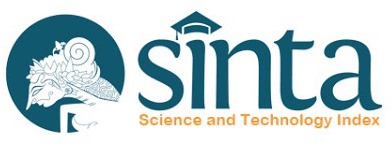Potential Risk of Organic Contaminants to The Coastal Population Through Seafood Consumption from Jakarta Bay
Dwiyitno Dwiyitno, Nuri Andarwulan, Hari Eko Irianto, Hanifah Nuryani Lioe, Larissa Dsikowitzky, Farida Ariyani, Jan Schwarzbauer
Abstract
A comprehensive study on exposure assessment of the priority organic contaminants via seafood consumption has been conducted to the coastal population of Jakarta Bay. Seafood is essential food source in Indonesia and also important income for the majority of coastal populations. A number of 152 respondents from 4 districts surounding the bay were interviewed to record their frequency and pattern on seafood consumption. In the same time, 13 seafood species were collected directly from Jakarta Bay during the dry and wet seasons for the assessment of organic contaminants. A non-target GC/MS screening identified more than 40 organic contaminants in which 6 of them are potentially considered as priority contaminants including 3 groups of carcinogenic contaminants i.e. dichlorodiphenyl-trichlorethane (DDT) and its metabolites (DDXs), dichlorobenzenes (DCB) and carcinogenic PAHs (PAH4). Further exposure analysis suggested cumulative health risk of these contaminants was less than official minimal risk level (MRL) and therefore categorized safe for the corresponding population. However, attention must be paid since additional exposure of either from the different food category or other exposure route may contribute to significantly elevate the health risk on the population as well as potential exposure of emerging contaminants.
Keywords
exposure assessment, organic contaminant, coastal population, seafood, Jakarta Bay
DOI:
https://doi.org/10.15578/squalen.289
Article Metrics

Abstract View: 374,

PDF Download: 282
Refbacks
- There are currently no refbacks.

ISSN : 2089-5690(print), E-ISSN : 2406-9272(online)
This work is licensed under a Creative Commons Attribution-NonCommercial-ShareAlike 4.0 International License.
 PDF Download: 282
PDF Download: 282











